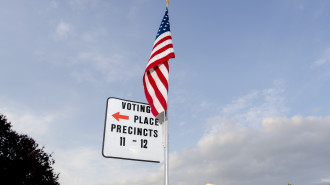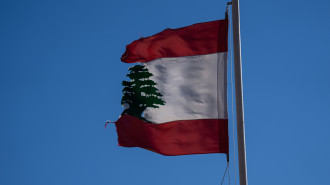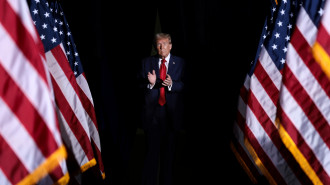Khalid Al-Karimi is a freelance reporter and translator. He is a staff member of the Sanaa-based Yemeni Media Center and previously worked as a full-time editor and reporter for the Yemen Times newspaper.
Follow him on Twitter: @Khalidkarimi205
Yemen reacts to the destruction of Sanaa's Sabaeen Square
At around 01:40 on Sunday morning, Saudi-led airstrikes pounded the tourist site, leaving many Yemenis in a state of shock over the blackened remains.
Since the 2011 uprising in Yemen, Al-Sabaeen square has been a gathering place of the GPC supporters from across the country. Former President Saleh delivered several political speeches there, the latest of which on August 24 of this year.
Ahlam Amri, a high school graduate living in Sanaa, said the attack on al-Sabaeen was "unjustified, wrong and barbarous."
"Al-Sabaeen Square is an icon of the republic and democratic Yemen. It is true that the airstrikes destroyed this iconic place, but it will not coerce Yemenis into surrender," said Amri.
Osama Yahia, a local resident in Sanaa, said Yemen has been steadily losing its infrastructure since the war breakout in March of 2015, and bombing al-Sabaeen is the latest example.
"This historic parade stand is not the possession of the Houthis or any other political party. It belongs to all Yemenis," Yahia told The New Arab.
"Destroying this parade stand doesn't hurt just the Houthis - it has hurt millions of Yemenis."
 |
After three years of war, siege, destruction and thousands of martyrs and injuries, this loss is nothing. The Saudis will bear the cost for what they have destroyed in Yemen |  |
The airstrikes on Sanaa have intensified in recent weeks as Saudi-led coalition warplanes continue to hover over Houthi-controlled areas.
This escalation came in the wake of the Houthi ballistic missile that was fired towards the Saudi capital on November 4.
Read more: Saudi crown prince accuses Iran of 'direct aggression'
Early in the morning of Saturday of this week, the Sanaa-based government said its armed popular committees fired a Burkan H2 ballistic missile at King Khalid International Airport.
This astounding attack infuriated Riyadh, which has since launched a string of airstrikes against many locations, including the parade stand.
Neither the first nor the last loss
Noura Al-Jarwi, a political activist and a member of the General People's Congress (GPC), said in a Facebook post that bombing Al-Sabaeen stand is not the first loss Yemen has sustained.
Read more: Yemen's students face another uncertain new school year
"After three years of war, siege, destruction and thousands of martyrs and injuries, this loss is nothing. The Saudis will bear the cost for what they have destroyed in Yemen," she said.
Residents in Sanaa were also furious that Yemen's internationally recognized government had allowed this demolition to happen.
Sharif Naji, a Sanaa resident, said he went to see the ruins on Sunday and felt sad.
"The airstrikes have targeted hospitals, schools, funeral halls, wedding halls and now the parade stand.
"How can Yemenis trust the so-called legitimate government?" asked Naji.
"When I looked at the charred stand, I could not conceal my sorrow. I remembered the thousands of people who used to come near there to protest or celebrate. The war has ruined the beauty of our country," Naji told The New Arab.
Twitter Post
|
While countless Yemenis express regret about the coalition-led airstrikes on the stand, other Yemenis have a different nonchalant reaction towards this attack.
Ali Aqlan, a bus driver working in Sanaa, said the destruction did not make him "gloomy."
"Politicians and leaders in Yemen should feel sad and sorry because they have brought these ills to the country as they continue their battle over power," Aqlan told The New Arab.
Yemen spiraled into a civil war when the Houthi group and their allies ousted the Saudi-backed Yemen government early 2015, leading to the military intervention of the Saudi-led Arab coalition.
One missile but serious consequences
The Saturday missile attack on Riyadh sparked serious consequences for Yemen. The response of the Saudi-led coalition was not only to bomb the parade stand and other military outposts but also the closure of all Yemen's borders.
This was a development which will exacerbate the already catastrophic humanitarian situation in this war-torn country.
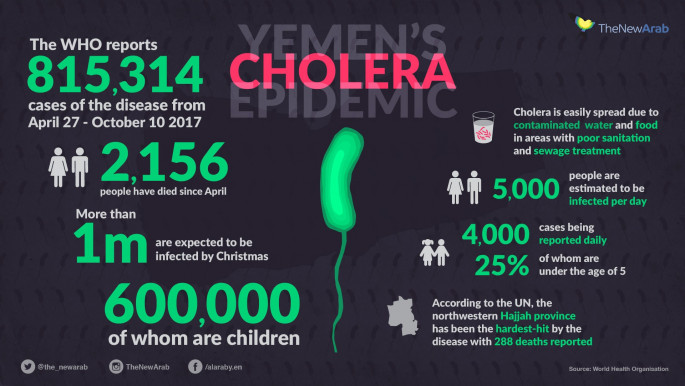 |
|
| Yemen's cholera epidemic [TNA] |
Hours after declaring the coalition shutdown of Yemen's borders, the fuel crisis rose rapidly and citizens were queuing in multitudes near the gas stations in Sanaa. Flights were suspended in Yemen's southern airports.
30-year old Faisal Mohammed, a resident in Sanaa, said he used to pay around YR5600 ($13) for 20 litres of petrol.
"After the Saudi closure of Yemen's border, the price skyrocketed. Now, the 20 litres cost YR8000 (about $18)," said Mohammed.
The UN warned against the blockade of the humanitarian aid in Yemen, warning that this procedure will put millions at risk.
"Humanitarian operations are being blocked as a result of the closure ordered by the Saudi-led coalition, Jens Laerke, a spokesperson for the UN Office for the Coordination of Humanitarian Affairs (OCHA) said at a regular press briefing in Geneva.
Saudi Arabia has repeatedly accused Iran of smuggling weapons to the Houthi militants who tighten their grip on large swathes in Yemen's north.
This week, Saudi Crown Prince Mohammed bin Salman described Iran's supply of rockets to Yemen's Houthis as an act of war. Iran denies the accusation.
Amidst this tension and war of words between the two regional powers, KSA and Iran, Yemenis think their country is the loser.
"They compete to control us, and this will destroy us and destroy our infrastructure," said Faisal Mohammed.

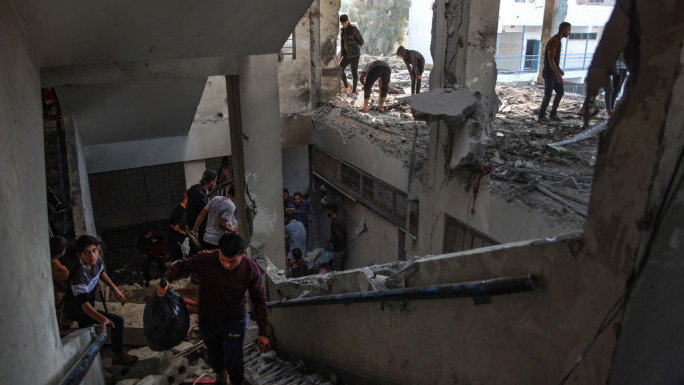
![President Pezeshkian has denounced Israel's attacks on Lebanon [Getty]](/sites/default/files/styles/image_684x385/public/2173482924.jpeg?h=a5f2f23a&itok=q3evVtko)

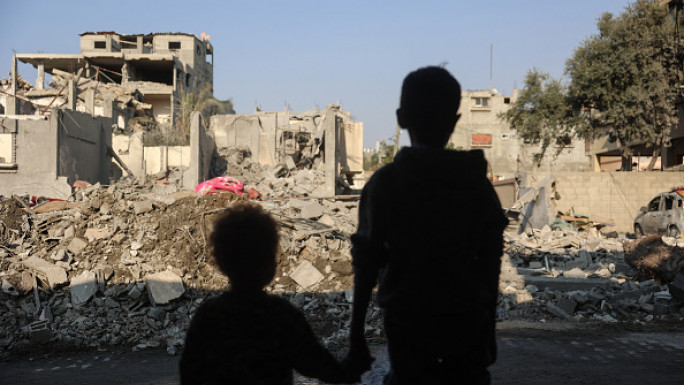
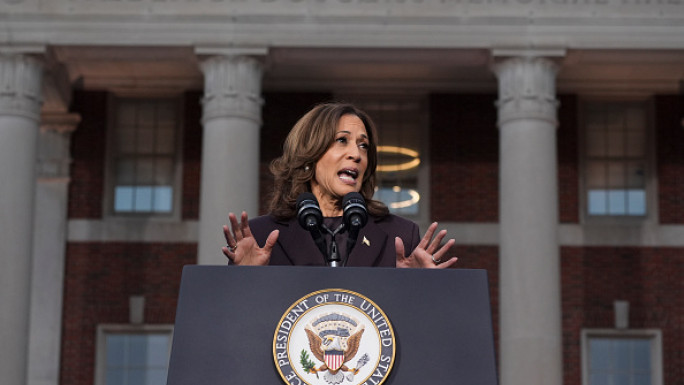
 Follow the Middle East's top stories in English at The New Arab on Google News
Follow the Middle East's top stories in English at The New Arab on Google News
